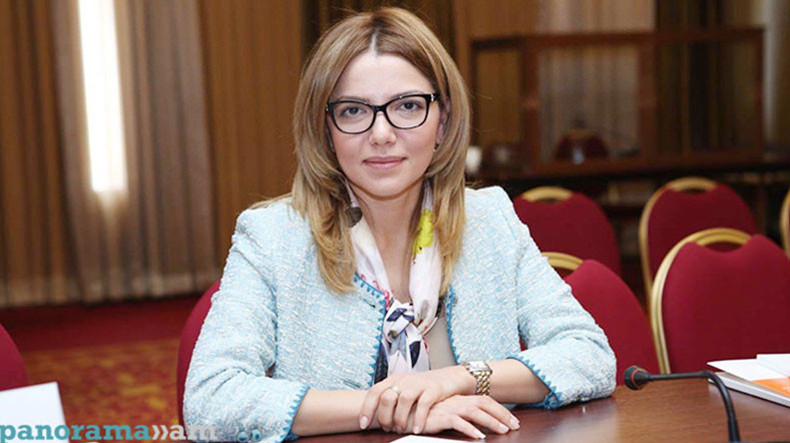
Implications for non-resolution of the conflict around Nagorno Karabakh
The OSCE Minsk Group Co-Chairs visited Baku and Yerevan during the regular trip to the region. As it has been the case with statements summing up previous visits, they spread little light on the content of the talks, except documenting the fact of the meetings. Earlier PM Nikol Pashinyan held informal meeting with Azerbaijani President Ilham Aliyev in Davos that was facilitated without the Minsk Group mediators. The Co-Chairs thus came to region to receive first-hand information as confirmed in the statement of the government press service.
After the Co-Chairs’ visit, number of experts came up with comments on the situation, former U.S. co-chair of the OSCE Minsk Group Richard Hoagland and analyst Paul Goble among them.
Dabbing the recent developments as promising, Ambassador Hoagland, however, sees no breakthrough in the near future. He has reflected on the so-called “Lavrov plan”, emphasizing the main decision in the matter is in the hands of Moscow, also voicing the long-stated view that the Kremlin has no interest in solving the conflicts in the post -Soviet region out of fear to lose its leverage.
Paul Goble mainly agrees with this statement, and asserts it is questionable whether Russia actually wants a resolution of the conflict, instead controlling the negotiations to preserve its influence in the region of the South Caucasus. In short, American experts ascribe the non-constructive role in the NK peace process to Russia which is not unexpected and even is backed by certain facts.
According to this logic, Russia presents unrealistic options for the conflict settlement to the sides, like the “Lavrov plan”, ensures low intensity of the talks, sales weapons to them and controls to prevent any tension to evolve into large-scale military actions. It turns out Russia’s strategic interest is in maintaining a frozen or semi-frozen conflict to use it as a tool in relations with Armenia and Azerbaijan.
This assumption implies that any scenario of the conflict settlement will result in losing influence in the region for Russia, and the countries under subject will leave “Russian spheres of interests”. This certainly is a regrettable situation if it turns out that Russia sees no other efficient option to keep Armenia and Azerbaijan within its orbit apart from forcing a friendship to them.
On the other side, other actors may benefit from the unresolved conflict of Nagorno Karabakh, including Turkey, Iran, US, and Georgia, as Russian permanent success on the geopolitical turns is not guaranteed. Having an unresolved conflict in the volatile and vulnerable region of the South Caucasus provides equal number of challenges and opportunities.
Imagine, if theoretically the Armenian and Azerbaijani leaders reach an agreement without any mediator be from Russia, US or elsewhere, and the conflict is resolved. The Russian side will not be interested in it to recall the arguments brought above. The US, in turn, does not consider the NK settlement a priority. The Trump administration is now focusing on Iran, while the settlement of the NK conflict could open up opportunities in this direction. The third Co-Chairing state of the Minsk Group France has no vital interest in this conflict. France itself faces more significant challenges both internally and in Europe, yet it wishes to stay involved in the conflict settlement process
Summing up we can conclude that despite public assurances that Nagorno Karabakh is one of the few conflicts where the mediators have no diverging positions, the reality is that neither agreement on principles of solving the conflict nor around the idea of solving the issue in general exists.
Any change of the status quo will lead to the redesign of mechanism of the reginal leverage with negative consequences. That is why in the coming future the OSCE Minsk group will continue its role of maintaining status quo as expressed in institutional terms. No one can blame them for inaction as the blame can be easily put on the conflicting sides. In theory, the idea that Armenia and Azerbaijan can reach an agreement without a mediator seems unrealistic due to diametrically opposed and uncompromising stances of the countries.
No matter how reasonable and rational the mediators consider the Madrid principles, they do not meet the expectations of the parties especially when they are not prone for substantial compromises amid a lack of atmosphere of trust. In order to ensure a breakthrough in the negotiations either new approaches should be adopted, or the parties should revisit their ‘read lines’. This refers first and foremost to Azerbaijan that never leaves its “all and at once” principle. In fact, this infantile policy is characterized with aggressiveness of a child and irresponsibility toward own deeds. Otherwise, it remains irrelevant whether the meeting took place in the Alps or the agreements were reached in an elevator in the Central Asia, in Austrian or Russian Imperial palaces.
Ana Mkrtchyan. political scientist
Newsfeed
Videos






























